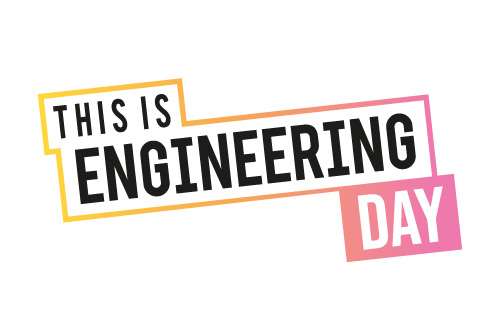
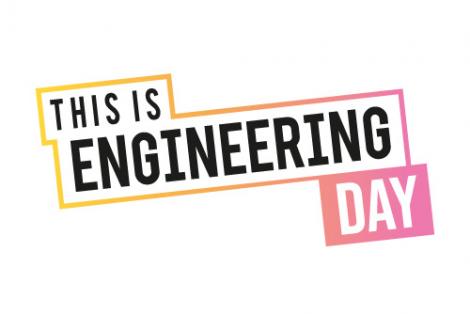
Engineers are shaping the world for the better.
#BeTheDifference – how three Southampton engineers are changing the world

Engineers are shaping the world for the better.
This Is Engineering Day celebrates the achievements of engineers around the globe who are tackling global challenges, from access to clean water and electricity, to sustainable technology and transport.
The University of Southampton is at the forefront of innovation across diverse research and enterprise in engineering.
Southampton offers over 50 courses in engineering and is ranked first in the UK for Civil Engineering and Electrical & Electronic Engineering in the Guardian University Guide 2021.
Three engineers from Southampton share how their work is changing the world, and just what it is that they enjoy about being an engineer.
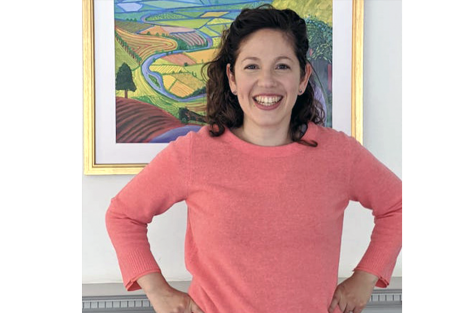
Dr Kate Farrahi
Assistant Professor, VLC Group
What do you cover as an engineer?
As an engineer, I specialise in the field of computer science (software engineering). My particular focus is on machine learning which is a branch of artificial intelligence. My research often focuses on applications related to healthcare and ubiquitous forms of data, such as large-scale data obtained by mobile phones or wearable sensors. Some applications of my research include mental health state and mood predictions from large mobile phone datasets, Parkinson’s Disease prediction from keyboard typing behaviour, transfer learning via cascade trained deep neural networks on human activity recognition and medical images, particularly x-rays, as well as digital epidemics.
How are you making a difference to the world through your work?
While my research is varied across applications, there is one topic that has become most relevant recently in light of COVID-19. Some research from several years ago on digital epidemics, which seemed to be the most abstract and disconnected from reality at the time, has become the most relevant and important in light of this pandemic. We had investigated how to incorporate a theoretical contact tracing model in a digital scenario, with simulations and experiments performed over real Bluetooth interaction data as a proxy for physical proximity from phone data. This appears to be the first paper on digital contact tracing.
What do you enjoy about being an engineer?
I enjoy many aspects of engineering life, but the point that tops the list is the ability to work on interesting and complex problems. There is always a new challenge to think about and my role allows me to choose these problems. The second point is that I can work and collaborate with some of the brightest and most interesting researchers and students, and to collaborate internationally. Thirdly, I love the fact that I have been able to travel to interesting places because of conferences and projects, and I'm hopeful that this will be a possibility again soon.
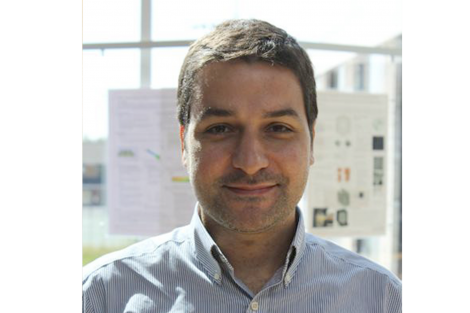
Dr Nuno Bimbo
Lecturer in Chemical Engineering
What do you cover as an engineer?
I am a chemical engineer who specialises in materials for cleaner processes. Most of my research is related to sustainability and clean technologies, especially the development of a class of materials (porous materials) that can be applied in energy conversion, storage and gas separations. Materials are critical for developments in some technologies that can make a real difference in society, and I am working on materials that can be used in areas such as hydrogen storage, batteries and fuel cells. I am also quite interested in materials for efficient separations, as industrial separations still account for about 15 per cent of the world’s primary energy demand.
How are you making a difference to the world through your work?
In addition to my teaching, which I hope is preparing students to one day contribute to solving problems and create a cleaner, fairer and more sustainable world, I hope my research contributes to solving some of society’s big challenges.
In my view, the big challenges of the 21st century are related to meeting an increased demand for energy, water, food and commodities such as medicines and hygiene products, among others. This increased demand needs to be met while minimising the impact of human activities on the environment and on resources.
These are extraordinary challenges and I hope I can contribute with my work to the global research effort that addresses these. This can be through the development of new materials that can store more hydrogen and decarbonise the transport sector, or through the synthesis of new materials that can bring about more efficient separations, therefore minimising cost and energy use.
What do you enjoy about being an engineer?
There are many aspects of being an engineer that I greatly enjoy. One of the main things I enjoy about being an engineer is the ability to bring together knowledge in sciences and technology to solve practical problems. I think we have come a long way in the last century in improving global quality of life, but there are still many problems to address in our society.
Many of these problems are technical, and I think engineers will be critical in solving these. Two excellent and related examples of these challenges are the environmental impacts of human activity and anthropogenic climate change. It brings me great excitement to hopefully be able to make even the tiniest contribution to the development of cleaner and sustainable technologies that can tackle these problems.
I think we have come a long way in the last century in improving global quality of life, but there are still many problems to address in our society.
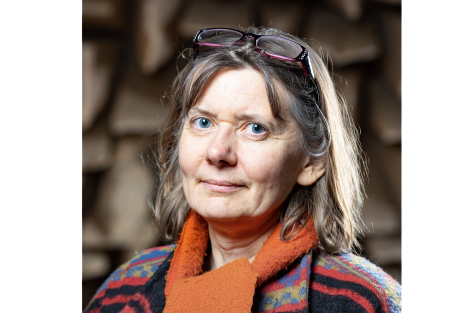
Dr Jen Muggleton
Principal Research Fellow, ISVR
What do you cover as an engineer?
In my A level year I took part in Insight ’81, a programme designed to encourage women into engineering, for which I spent a week at Imperial College (where I eventually studied) in the various engineering departments. I originally graduated in Aeronautical Engineering in the mid ’80s before starting work at a non-academic research organisation. I had always liked acoustics so was delighted when I was asked to be involved in a programme looking at sound radiated from structures underwater.
This led to my pursuing a PhD in pipe vibration and wave propagation at the internationally-renowned Institute of Sound and Vibration Research (ISVR), an area I have worked in ever since (and since the 1990s within the ISVR). My work is very industry-focused, much of it concerned with water leak detection. I have worked on a number of projects related to buried infrastructure, of concern to many sectors, but most particularly the water, gas and oil industries.
How are you making a difference to the world through your work?
Water leakage is a huge problem, both in the UK and the world over; recent figures indicate that between 30 per cent and 50 per cent of this valuable resource is lost in this manner. Acoustic methods predominate in the armoury of leak detection methods but are not always successful in locating leaks, particularly as more plastic pipes have been introduced into the UK water network. My research has developed the fundamental underpinning science which has allowed the water industry to understand why techniques which work well on metal pipes are less effective when used on plastic pipes. Armed with this information, we can then propose alternative approaches focused on these and other challenging areas.
What do you enjoy about being an engineer?
A particularly challenging area of my work has been navigating the interface between academia and industry. Academics are often seen as working on problems remote from the real world in their ‘ivory towers’. Forging fruitful industry connections can be a long and arduous process, but the ‘lightbulb’ moments, when previously sceptical businessmen and women realise that the research you are proposing could make a significant impact on their sector, make the effort truly worthwhile. I am now in the privileged position of having worked with many of my industrial partners for several decades, with these relationships being foundational for my research going forward.

Dr Jen Muggleton
Principal Research Fellow, ISVR
I think we have come a long way in the last century in improving global quality of life, but there are still many problems to address in our society.

Dr Nuno Bimbo
Lecturer in Chemical Engineering